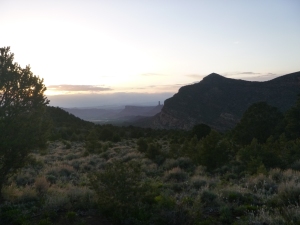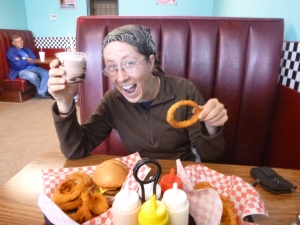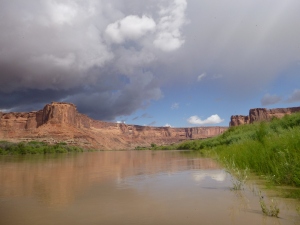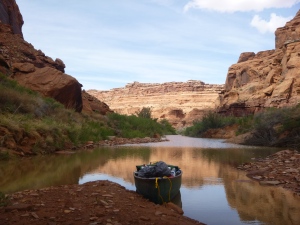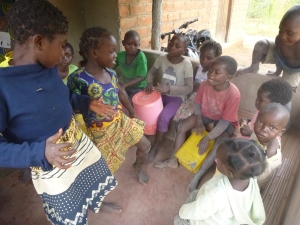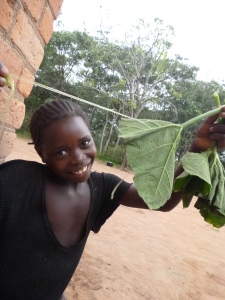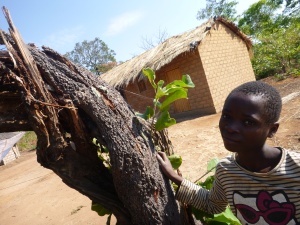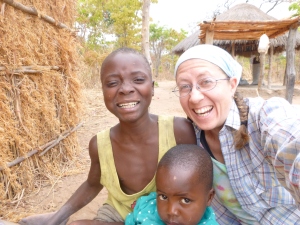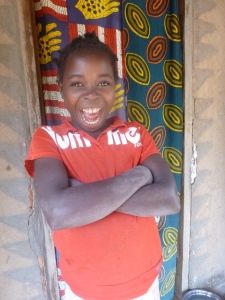It’s all still here. The massive grocery stores and minor disputes. The four-dollar lattes and cheesecake and ice cream any time I want it. The fears and insecurities. The constant chatter of life in America.
Exactly two weeks ago, I returned to my home country after 27 months away – far and away the longest I’d ever gone without touching U.S. soil. I left Mfuba and Zambia behind, and I steeled myself for the biggest cultural shock of my life.
I can’t say exactly what I expected when I boarded that plane in Lusaka. I’d travelled pretty extensively in other countries before joining the Peace Corps. I knew fairly well that jarring sense of returning to a land you think is familiar, only to find that, suddenly, it isn’t.
And I’d heard all the complaints of RPCVs (Returned Peace Corps Volunteers) going through their own versions of culture shock: The complaints about how clueless Americans are. How greedy. How micro-chip-saturated. How socially isolated. How fearful and judgmental about the rest of the world.
Anger at America and Americans after living for so long in a developing country seems practically a cliché.
But I am an American. I am as much a part of all this as anyone else here.
And in the past two weeks since I stepped off that plane, I’ve been reminded, over and over again, that all this is still here, too: The snow-capped mountains and snow-fed rivers. The innovation and creativity. The stars of the Northern Hemisphere. The solitude of desert canyons. The kindness of strangers. The love of familiar faces. The people who know me inside and out.
To be fair, my re-entry to America has so far been atypical.
Rather than fly straight back to Montana and the rush of everyday life, I stepped off my last plane in Salt Lake City, with the intention of spending a couple weeks backpacking and floating through isolated stretches of desert, with just one person whom I love.
I guess you could call me an atypical PCV. I didn’t care so much about what I’d eat for my first meal back in the States, or where I’d take that first long, hot shower. I wanted to set my feet back down on the earth that reminds me why I love this country. I wanted to bathe in mountain streams and sleep out under those old familiar stars.
Though southern Utah isn’t home for me, I’d traveled here before, and it seemed a wonderful place to reconnect. (Not least because I figured it would be a warm transition to spring in chilly Montana.)
I should’ve known things wouldn’t turn out quite as planned. I shivered in the desert. Strong winds blew sand into our food. I saw my first snow in 27 months. Essential camping items disappeared or malfunctioned. Our grand wilderness plans devolved into brief spurts of car camping interspersed with staying indoors in the touristy town of Moab.
I ended up in all those giant supermarkets and trendy coffee shops and roadside burger joints a lot sooner than I’d expected.
It was all a little surreal. The 20 different brands of peanut butter (none remotely as good as that made from hand-roasted Zambian groundnuts.) The motion-sensor sinks and soap dispensers. The hundreds of useless outdoor gadgets. (Three-hundred-dollar rain jackets! Heart monitors! Expensive plastic water bottles in every color and size imaginable! Ultralight titanium backpacking shot glasses!)
But here’s what else I found:
A New Yorker who insisted I cut in front of her at JFK airport security, because I was rushing to make my last flight connection. Music in the desert. Beaming smiles and warm greetings from almost every American I ran into.
And I’m just going to admit it right here: the ears of sweet corn I’ve devoured have been delicious in a way that Zambian maize will never be, and that slice of chocolate-pumpkin cheesecake rocked my world.
After more than a week of this, we finally did that five-day canoe trip down the Green River.
It was everything I’d wanted in a homecoming. Rushing water. Birdsong. Solitude. Heartfelt conversation with someone I love. Stunning, indescribable beauty around every bend.
All along this journey, from the moment I stepped on that first plane in Lusaka, I’ve carried in my heart the kids of Mfuba. I can’t stop imagining them with me, and wondering what Boyd, Stephen, Joyci, Cila, Obed, Katongo, Agri, Lavenda, Mavis, Allan Jr., and the rest would think about all I’ve seen. I’ve pictured their gasps and “oh-WAY!”s at the jumbo jets; the world unfolding below us as we rose into the sky; the endless stream of movies and video games available on the back of every seat on the plane; and all the stores and gadgets and foods and lights and motokas once we landed.
But there, in the raw elements of the American desert, was where I most wished I’d had them with me. I wanted so badly for them to see the majesty of the Green River; the petroglyphs of the Anasazi; the steep, red canyon walls; the joy of Americans in our natural surroundings. I wanted them to see America as I see it.
I’ve spent nights crying over this. About how I couldn’t change those kids’ lives in the way I wanted, even though they changed mine so much. About how unfair it is that no matter how much they want to, my Mfuba friends will most likely never see what I have seen of the world. About how messed up – how completely arbitrary – it is that I get to return to the land of electricity, running water, and more consumer products than Mfubans could even dream of, while they remain without.
Mostly, I just miss them. I know I’ll never again see those kids skipping into my yard, calling out, “Ba Terri! Ba Terri!” and offering me bush fruits or sweet potatoes. I’ll never again have a gaggle of 20 crazy-wonderful kids filling my porch, just because they want to hang out with me.
I’ve chosen instead all the complexities and contradictions of America. I’ve chosen to leave Mfuba, and to learn to balance all that I learned there with all the things that make me an American.
There’s no sense lamenting over it, or becoming an angry, guilt-ridden RPCV. I’d rather bring back all that those kids taught me – about generosity, about kindness, about community, about the importance of greeting everyone you meet – and carry it with me.
I can’t change America. But I can change one American: me.
